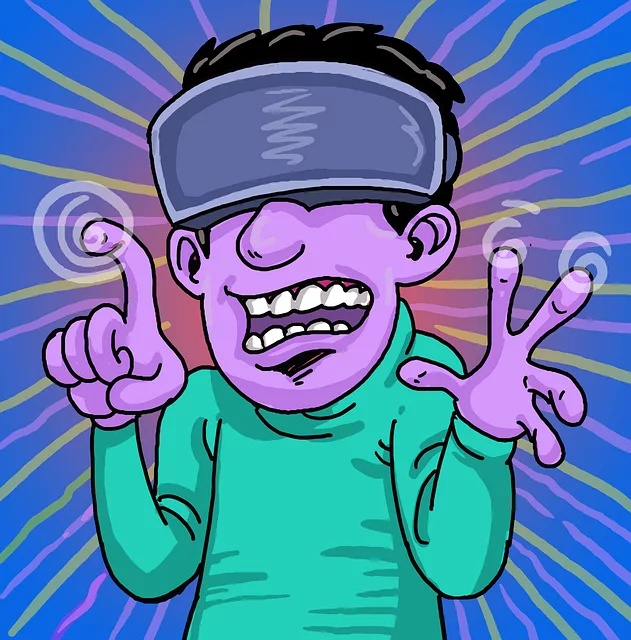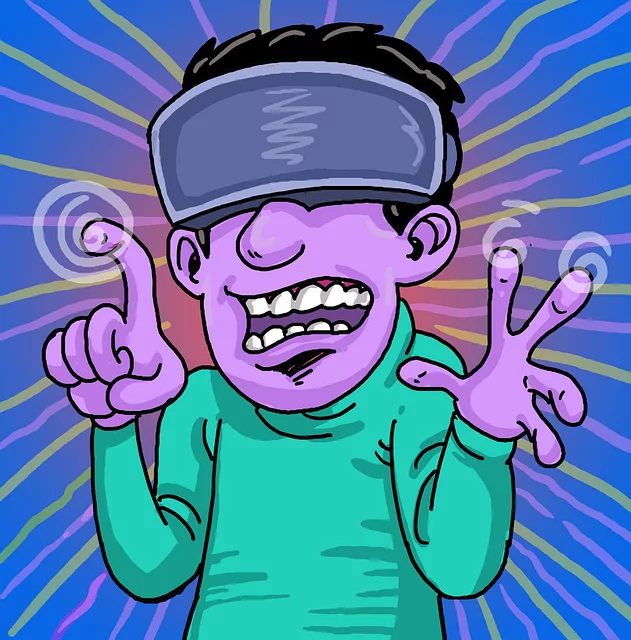Virtual therapy sessions have transformed mental health care by providing a convenient, accessible, and inclusive alternative. Through secure online platforms, individuals can receive one-on-one or group counseling from home, breaking down geographical barriers and accommodating diverse schedules. This approach benefits those with location restrictions, mobility issues, or busy lifestyles, ensuring equal access to high-quality mental health care. The right platform should prioritize security, user privacy, and engaging features to facilitate effective therapy. Patient privacy is paramount, with therapists implementing robust security measures and patients ensuring their devices are secure. Virtual therapy sessions represent a significant shift in mental healthcare, offering unprecedented accessibility and convenience, especially for those in remote areas or with limited mobility.
In today’s digital era, e-therapy sessions have emerged as a revolutionary force in mental health care. “Understanding Virtual Therapy Sessions” explores this modern approach, delving into its benefits and how technology facilitates effective online therapy. We dissect the process of choosing secure platforms while prioritizing patient privacy and confidentiality. Furthermore, the article navigates integrating e-therapy into traditional practices, offering best practices and a glimpse into its promising future, making mental health services more accessible than ever before.
Understanding Virtual Therapy Sessions: A Modern Approach to Mental Health Care

In today’s digital era, virtual therapy sessions have emerged as a game-changer in mental health care. This modern approach allows individuals to access therapeutic support from the comfort of their own homes, removing geographical barriers and accommodating diverse schedules. Through secure video conferencing platforms, clients can connect with licensed therapists for one-on-one counseling, group therapy, or even family therapy sessions, all without leaving their living rooms.
This innovative method of delivering psychological services is particularly beneficial for those who may face challenges attending in-person meetings due to various constraints, such as location, mobility issues, or busy work and social calendars. By adopting virtual therapy sessions, mental health professionals can reach a broader audience, ensuring that quality care is accessible to all, fostering a more inclusive and flexible therapeutic environment.
The Benefits of E-therapy: Reach and Accessibility Improved

The advent of virtual therapy sessions has significantly enhanced reach and accessibility in mental health care. Traditional in-person therapy often faces barriers such as geographical constraints, long wait times, and limited availability, particularly in remote areas or during times of crisis. E-therapy overcomes these hurdles by providing a convenient and flexible alternative. Through video conferencing, chat platforms, or mobile apps, clients can access therapeutic support from the comfort of their homes, at any time that suits them. This accessibility is especially beneficial for individuals with physical disabilities, those in rural or underserved communities, or anyone facing challenges navigating traditional therapy settings.
Moreover, virtual therapy sessions enable a broader range of therapeutic interventions to be delivered remotely. Therapists can employ various techniques, such as cognitive-behavioural therapy (CBT), mindfulness practices, and art therapy, via digital platforms, ensuring that clients receive the same high-quality care regardless of their location. The convenience and accessibility of e-therapy sessions contribute to increased participation in mental health treatment, fostering better outcomes and improved well-being for a wider population.
How Technology Enables Effective Therapy Sessions Online

Technology has revolutionized the face of therapy, making way for effective virtual therapy sessions. Online platforms offer a convenient and accessible approach to mental health support, breaking down geographical barriers. Through secure video conferencing tools, clients can connect with therapists from the comfort of their homes, fostering a sense of familiarity and reducing potential anxiety associated with traditional in-person visits. This accessibility is especially beneficial for individuals in remote areas or those with limited mobility.
Additionally, digital platforms provide a range of therapeutic interventions tailored to online settings. From cognitive-behavioral therapy (CBT) apps to interactive video games for children, technology offers innovative ways to engage and support clients. These sessions ensure continuity of care, allowing therapists to monitor progress, adjust treatment plans, and provide immediate feedback, all while maintaining the confidentiality and privacy that traditional therapy sessions offer.
Choosing the Right Platform for Secure and Engaging Virtual Therapies

Selecting the ideal platform for virtual therapy sessions is a pivotal step in ensuring both security and engagement in online mental health support. With numerous options available, it’s crucial to consider features that protect sensitive patient data, such as encryption protocols and user privacy controls. Look for platforms offering robust security measures to safeguard personal information from potential breaches.
Moreover, the platform should foster an engaging environment conducive to effective therapy. Consider tools like video conferencing with high-quality audio, chat functions, and interactive elements that encourage active participation. A user-friendly interface designed with accessibility in mind ensures comfort and minimizes technical barriers for both therapists and clients, enhancing overall therapeutic experiences in virtual therapy sessions.
Patient Privacy and Confidentiality in Digital Therapy Environments

In the realm of virtual therapy sessions, patient privacy and confidentiality are paramount. With digital platforms handling sensitive information, robust security measures are essential to protect personal details from unauthorized access or breaches. Therapists employ encrypted communication channels and secure data storage systems to safeguard client records, ensuring that discussions remain strictly confidential.
This heightened level of privacy is crucial for fostering trust between therapist and patient, enabling open dialogue about personal struggles. It’s important to remember that in virtual therapy environments, as with any digital interaction, the onus lies not only on service providers but also on patients to ensure their end devices are secure and up-to-date with privacy settings, thereby contributing to a comprehensive approach to data protection.
Integrating E-therapy into Traditional Practice: Best Practices and Future Outlook

The integration of e-therapy, or virtual therapy sessions, into traditional practice represents a significant evolution in mental health care. This shift is driven by advancements in technology and changing patient expectations, offering accessibility and convenience that were previously unattainable. Healthcare professionals are increasingly recognizing the potential of virtual therapy to reach a broader audience, especially those in remote areas or with limited mobility. By incorporating e-therapy sessions into their practices, mental health providers can expand their service offerings, ensuring more individuals receive the support they need.
Looking ahead, the future of e-therapy seems promising, with best practices emerging from early adopters. These include utilizing secure and reliable video conferencing platforms, maintaining strong therapeutic alliances through virtual interactions, and adapting therapeutic techniques to suit the digital medium. As technology continues to evolve, advancements such as artificial intelligence and augmented reality may further enhance e-therapy’s capabilities, making mental health care more engaging, personalized, and accessible for all.



